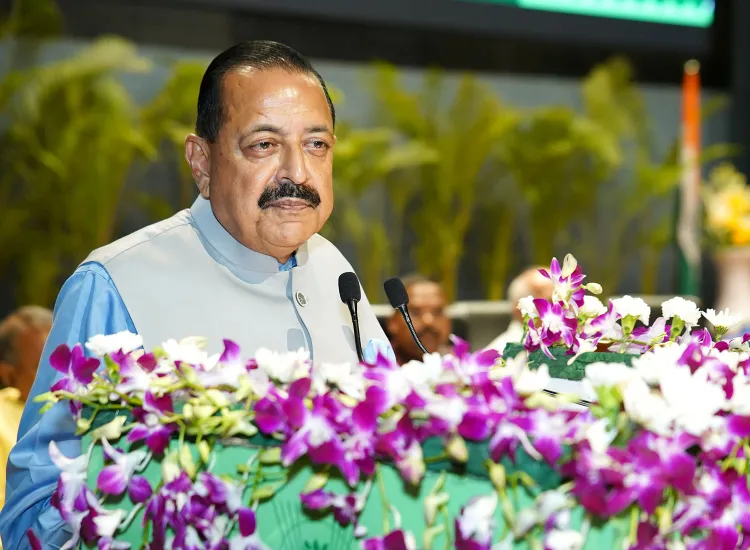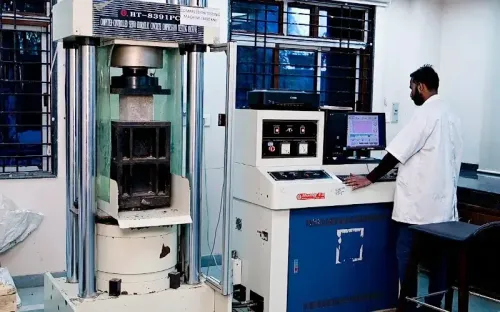Is India's Space Sector Ready to Propel Technological and Economic Growth?

Synopsis
Key Takeaways
- Indian space sector reforms initiated in 2020 have led to significant growth.
- Over 300 space start-ups registered post-reforms.
- IN-SPACe facilitates successful sub-orbital flights and satellite launches.
- Space sector expected to grow to $44 billion.
- Space is a catalyst for cross-sector innovation.
New Delhi, July 24 (NationPress) The Indian space sector is gearing up to significantly contribute to the nation's technological and economic advancement, as stated by Union Minister of State for Science and Technology Jitendra Singh during a session in Parliament on Thursday.
In a formal response in the Rajya Sabha, Singh outlined the initiatives undertaken by the government to enhance the space sector.
“Following the groundbreaking space reforms of 2020, the government has opened up the Indian space sector and established the Indian National Space Promotion and Authorization Centre (IN-SPACe),” Singh remarked.
“The Indian space sector is on the brink of playing a revolutionary role in the technological and economic narrative of the country,” he further elaborated.
Since the introduction of space sector reforms in 2020, the number of registered space start-ups has surged to over 300, he noted.
IN-SPACe has successfully facilitated two sub-orbital flights from Indian space start-ups in November 2022 and May 2024, showcasing their capabilities. Moreover, six NGEs have successfully launched fourteen satellites into orbit.
Another measure of the impact of space sector reforms is reflected in the number of proposals submitted for facilitation and authorization.
“IN-SPACe has received a total of 658 applications from more than 380 NGEs for various activities, including Launch Vehicles and subsystems (89), Satellite launch and Subsystems (236), Ground Segment (43), Space applications (124), and Promotional and Design Lab activities (121) till March,” the Minister of State stated.
IN-SPACe has issued 77 authorizations, signed 79 MoUs, provided 59 registration certificates to 31 data disseminators, signed 91 Joint Project Implementation Plans (JPIPs), and established 79 technology transfer agreements from 2020 to March this year. The Minister of State had previously estimated the space sector’s growth to reach $44 billion, which would represent nearly a fivefold increase.
However, Singh emphasized that the space sector “should be regarded as a strategic enabler, rather than the sole engine of economic growth.”
It “ought to be viewed as a catalyst for broader sectoral advancement, not merely as an individual pillar,” he added.
The Minister advocated for positioning the space sector as an enabler across various sectors; fostering cross-sector innovation and convergence with domains such as AI, quantum computing, and biotechnology; encouraging a balanced innovation portfolio and constructing policy and investment frameworks to maintain balanced growth without becoming overly dependent on the space sector.
“India should leverage space to foster a more widespread and inclusive socio-economic impact, through a diversified innovation-driven growth model, where space serves as both an integrator and an enabler,” Singh concluded.









